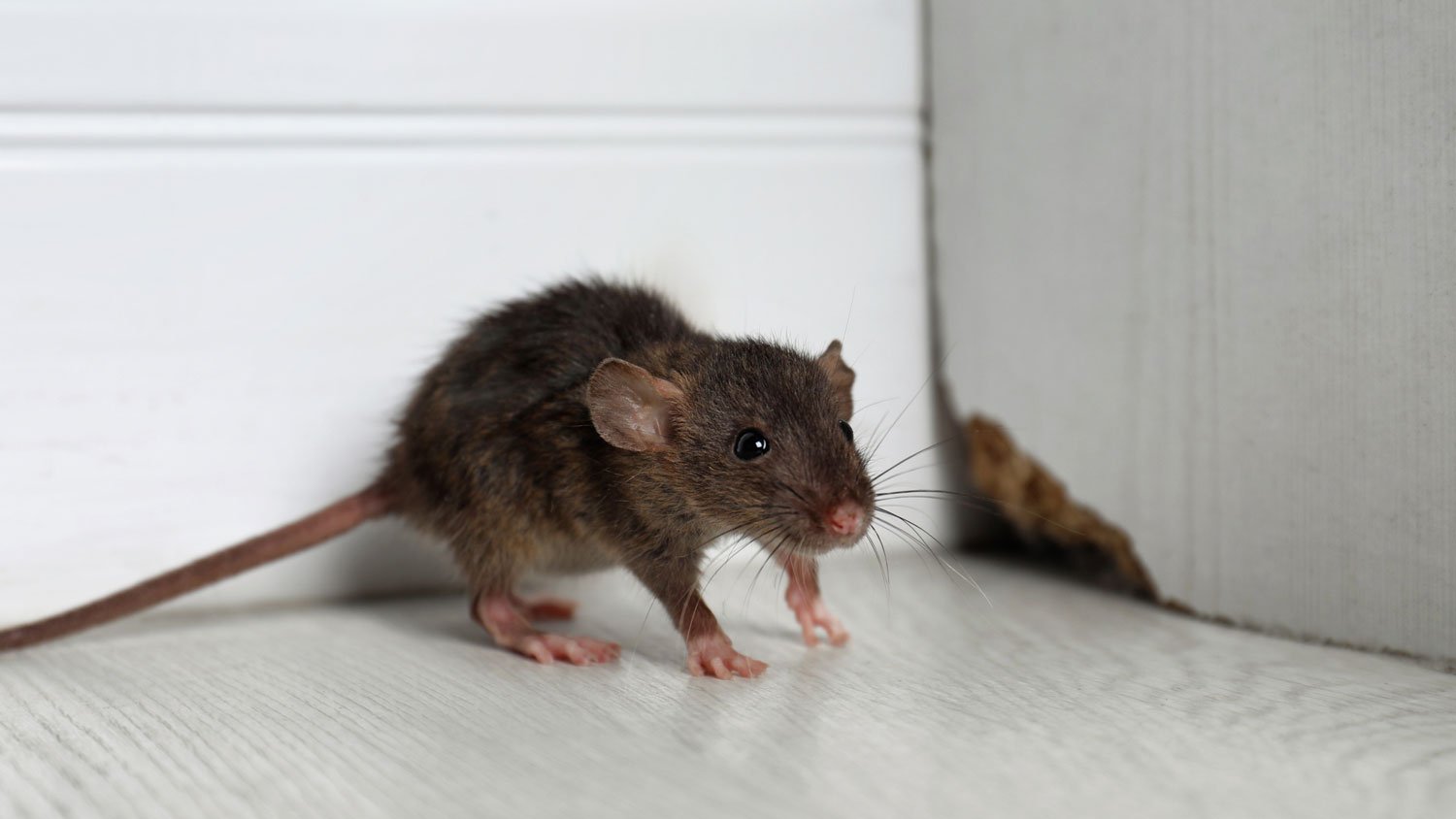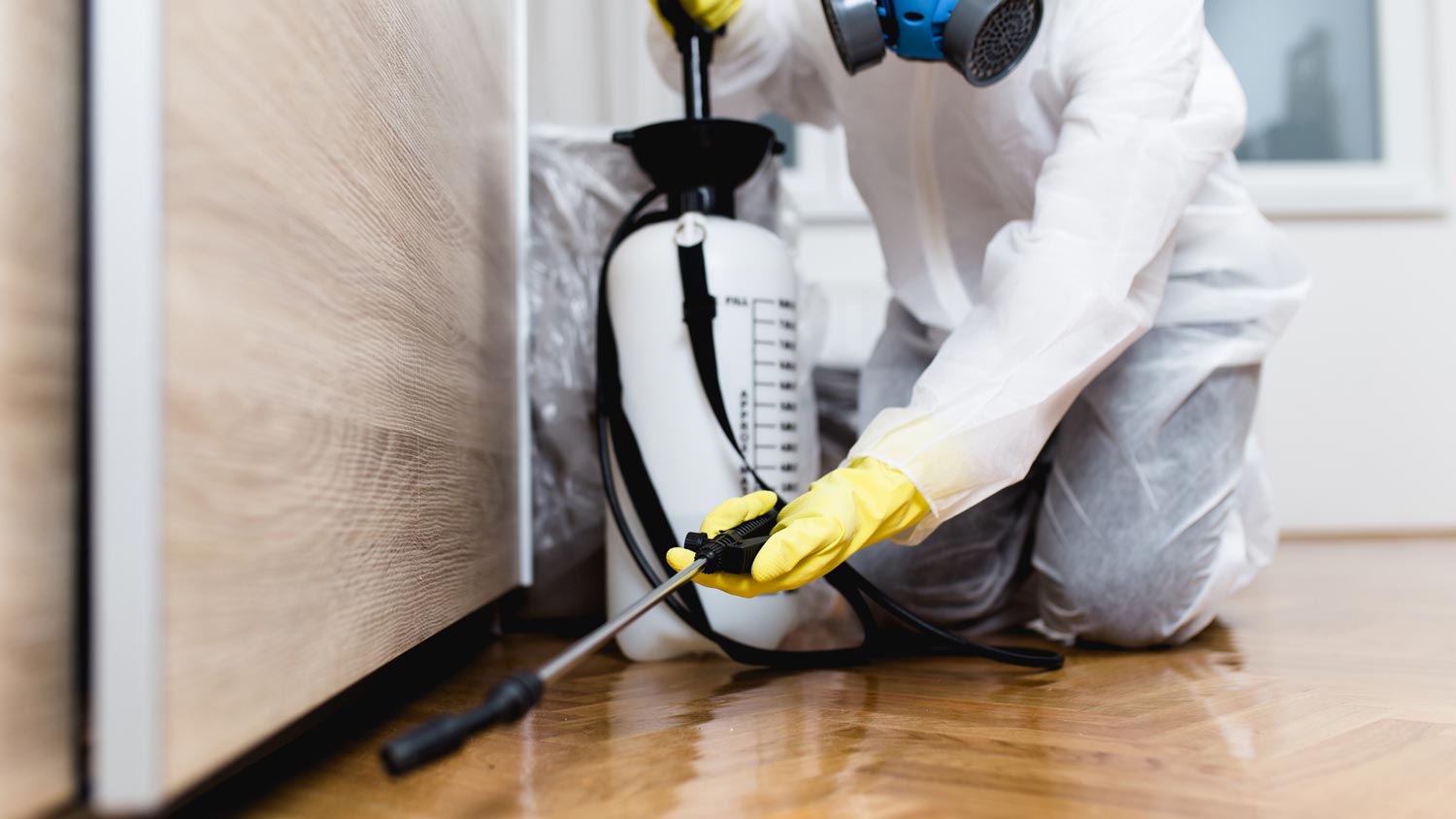
Whether you have bugs, bats, or rodents invading your home, you’ll want to contact an exterminator quickly. Find out how much pest control costs in Columbus, OH.
Here’s what to look out for with new rodent roommates


Mice naturally seek out shelter, food, and warmth.
Seeing a mouse or its droppings is a surefire sign that you’ve got a problem.
There are several DIY methods you can use to ward off mice.
Due to the rapid breeding of mice, a professional exterminator may be necessary.
Everyone has to deal with some kind of pest in their house at some point. And since mice invade as many as 21 million U.S. homes every winter, there’s a high chance yours could be one of them. But it’s hard to tell if you have a problem when you don’t know what to look for. Get to know the signs you have mice so that you can take care of them as efficiently as possible.

Spotting mouse feces around your home is one of the most obvious indicators that you’ve got some company. You’re more likely to see these droppings in the spots where mice are most active: near food or nesting areas like your pantry shelves or kitchen cupboards. Their droppings are black and cylindrical in shape, kind of like a grain of rice.
Droppings can release particles of bacteria into the air, so wear protective gloves when cleaning and be careful not to sweep or vacuum them. Instead, throw them away carefully in sealed plastic bags.
Sometimes, you’ll hear a mouse before seeing it. Their scurrying paws as they run around trying to collect food and nesting material will produce a scratching noise you may notice around the house or within your walls. They’re especially active at night. Keep an ear out for scratching noises or even muffled squeaking coming from your walls, floors, ceiling, or kitchen cabinets. It’s also worth noting that if you have a pet, they may smell the mice and could lead you to them if you pay close attention.
It’s in a mouse’s nature to build a nest once they’ve found shelter, and what better scraps to use than your household materials? Look out for missing or torn pieces of cardboard, fabric, plant material, or insulation. Mice also tend to make new holes in walls to set up their nests in dark or secluded parts of your home. That could be your attic, garage, basement, or behind a large piece of furniture.
Along with their particular scratching sound, mice come with a distinct odor emitted by their territory-establishing urine. It’s a musky, ammonia-tinged scent that’s likely to be in the same area as scratching and droppings. The odor may only be noticeable in enclosed spaces with less airflow, like a pantry or cabinets.
If you notice that the smell becomes worse over time, it’s a red flag for an infestation. Or, you may find the smell you notice resembles something rotting, which could be a deceased mouse decaying.
An old adage says that for every mouse you see, there are 10 more where that came from. You’re more likely to see them at night when their nocturnal senses make them more active. If you see a mouse during the day, it could mean there’s an infestation. It helps to know the difference between mice and rats since they share some similarities.
When you do see a mouse, it will run away out of fear. Try to notice which direction they escape and follow their lead—are they going towards the kitchen? The basement? From there, it might be easier to take steps to solve the issue, whether you choose to go the DIY route or hire a local exterminator.

Mice are always looking for warmth, shelter, and food, and unfortunately, your home provides them access to all three. They can often be found in the spaces between drywall or the recesses of rarely used cupboards where it’s easier to set up shop to nest, eat, and reproduce without being seen. It’s a common misunderstanding that mice are only around during the cold months—actually, they are opportunistic creatures that will infiltrate your walls at any time of year.

Here are some simple steps to take control of an infestation.
Look for spots where mice are entering your home. Seal off any points of entry with mouse-proof materials, like steel wool and caulk for smaller holes and metal or cement for larger holes.
Since mice are attracted to food sources, keeping food in hard plastic containers or sealed glass jars will remove a major motivation for mice to enter your space.
After sealing entrances, the next step is to set traps. Snap and electric traps kill mice quickly and are more humane than glue traps. Peanut butter is the most popular bait for traps, as it’s easily available and attractive to mice.
Some smells, including peppermint and capsaicin, found in chili peppers, will help deter mice. Dab some essential oils in problem areas like sheds and garages and use “rodent tape” treated with capsaicin to repel mice from a particular area.
If you still hear scurrying after taking these steps, call an exterminator to get rid of your mouse problem and prevent reinfestation.
If you’ve read through this article thinking, “check, check, and check,” chances are you’ve got an infestation on your hands. That means it’s probably too serious to handle yourself, and it’s time to call a local exterminator to come and take care of the problem for you.
Even though pest control services will cost you $170 on average, it’s definitely worth the price considering you’ll be ensuring the quality and safety of your home and guaranteeing your own peace of mind.
Hiring a rodent removal pro costs between $180 and $600. Factors that can affect the cost of hiring a pro include the size of your home, the extent of the rodent problem, and the accessibility of the treatment area. Inspecting your home for a rodent problem before it becomes too extensive is a good way to reduce the cost of hiring a pest control expert.
Rodents cause plenty of problems when they invade your home. Rodent waste and nests are signs of a potential infestation and account for about 50% of rat issues. Noise, damage, and health concerns are also common problems that homeowners face when rodents infest the house.
From average costs to expert advice, get all the answers you need to get your job done.

Whether you have bugs, bats, or rodents invading your home, you’ll want to contact an exterminator quickly. Find out how much pest control costs in Columbus, OH.

Tenting is a costly but effective way to exterminate termites. Learn the average termite tenting cost and everything that will factor into your budget.

How much does a gnat exterminator cost? The answer depends on the method of treatment and the level of infestation. Find out what plays into your budget.

Rodents can wreak havoc on your house if they build a nest under the porch. Learn how to get rid of rodents under the house and keep them from coming back.

If your dog brought some unwelcome pests into bed with you, learn how to get rid of fleas in bed before you’re covered in itchy bites.

Roaches in your cabinets can make your life hard, and they’re difficult to eliminate. Read on to learn how to get rid of cockroaches in your kitchen cabinets.